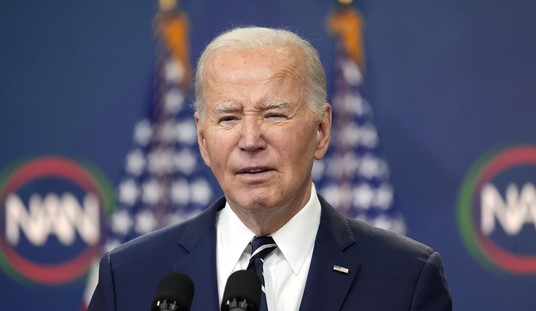The coalition is fractured.
Have you noticed this, like I have?
To use a cliché, it’s kind of like telling the Emperor that he has no clothes. Yet, as painful and embarrassing as that may be, it’s time that the “leaders” (whoever “they” may be today) of the “conservative movement” (whatever that may consist of today) step out of their state of denial, and come to terms with reality.
The Republican Party, having consisted of a coalition of three broad issues categories since the early 1980‘s, just isn’t what it used to be.
Historically, if your primary concerns for the country had to do with defense and national security, the Republican Party championed your issues. If you were mainly concerned about a high-functioning economy and reducing the burden of excessive taxation, you had a home within the Republican Party. And if your concerns were primarily about so-called “social issues” - - the definition of marriage and family, the rights of the unborn person, and so forth - - the Republican Party was where you belonged.
And as this three-pronged coalition has been meshing together over the past twenty-five years or so, the Democratic Party has often presented itself as a polar-opposite on key policy issues.
You don’t like increased federal spending on the military? You think our foreign policy is a little too “pro-America?” The Democratic Party is replete with rhetoric about “ending the war” and being more “collaborative” with entities like the United Nations.
If free-market enterprise makes you uncomfortable, the Democratic Party envisions a more collectivist-oriented economy that takes away from “the wealthy,” and gives back to the “poor” and the “middle class.”
Recommended
And while some Americans might be alienated by the Republican Party’s concern about the rights of the unborn person and the definition of marriage, the Democratic Party has provided clear alternatives to such policies - - “progressive” ideas like partial birth abortion, and same-sex civil unions.
Under the leadership and vision of President Reagan, the Republican Party managed to hold these three categories of voters together pretty well. During the 1990’s the coalition seemed to become more galvanized, especially in the face of the far-left leaning policies that emerged from the early days of the Clinton Presidency.
And for a good five years or so, President Bush held the coalition together - - barely.
But now, as we move forward through yet another presidential election cycle, the coalition is fractured. And it would seems that there isn’t one viable Republican presidential candidate who can keep all three issues groups happy.
What about Mike Huckabee? He’s got the goods for the social conservatives (at least in Iowa), but he’s questionable, at best, when it comes to fiscal policy. Equally as troubling, he has demonstrated a lack of discretion as to when and where to play his “faith card” (can I guy who wants to “take back America for Christ” really get elected???). Worse still, he’s been quite willing to play upon the ungrounded fears many evangelicals have of Mormons, exacerbating an already contentious alliance.
John McCain? It’s tough for any “Reagan conservative” to not love a leader who valiantly wore the uniform, suffered torture at the hands of communists, and then went on to become a “pro-defense” Senator. It’s also tough for a Reagan conservative to embrace a Senator who voted against tax cuts, no matter what his party affiliation is.
How about Mitt Romney? A former Governor who has “real world” private sector business experience, plus MBA and J.D. credentials from Harvard, would seem like a Republican presidential dream come true. But he may be too recent of a convert to his conservative views of marriage and abortion, to satisfy the social conservative movement. And as shameful and narrow minded as it is, many religious social conservatives (including the movement‘s “leaders” ) simply refuse to embrace a candidate whose theology isn’t “correct,” even if his policy positions are.
Maybe Fred Thompson can unite us. He would seem to have the correct policy positions on all three fronts (not withstanding Dr. James Dobson’s assertions that Thompson is “not a Christian”). Unfortunately, Thompson for whatever reason has made a point of repeatedly reminding us how much he dislikes campaigning, and even insinuated to a news reporter last fall that he doesn’t believe that he can get elected anyway. And regardless of how Thompson feels about himself, primary election voters have thus far felt very little for him. But frustration with the candidates is a small part of the problem. The real dilemma facing the Republican Party today is the fact that the “leaders” of the three big issues categories don’t get along very well. While in reality the three groups form a relationship of core necessity, they nonetheless act as though their relationship is merely one of short-term political convenience.
The “short term” may soon be over. And the future of the party, as well as the presidency, is anything but clear.

























Join the conversation as a VIP Member